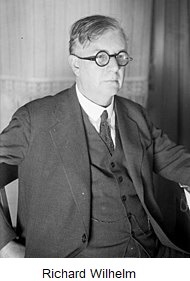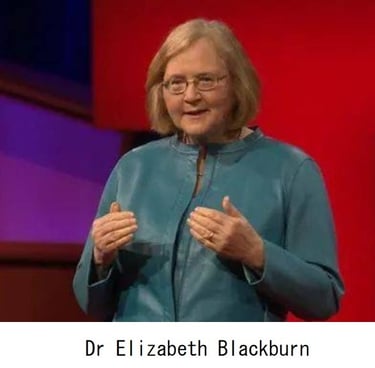American Scientific Research:
Meditation can rejuvenate your brain cells by 20 years
Dr. Zhu Weimin (July 6, 2023)






Since the beginning of the 20th century, Richard Wilhelm, a German, translated and published "The Secret of the Golden Flower," introducing the sitting meditation methods of Chinese Taoism to the West, which gradually popularized sitting meditation worldwide.
Numerous studies have shown that individuals who regularly practice sitting meditation have a younger brain and clearer thinking. Furthermore, regular meditation can slow down the aging process, help eliminate negative emotions and symptoms of anxiety. Research has also demonstrated that sitting meditation can have similar effects on genes and cells. This seemingly simple practice actually offers many benefits for the body.
A study published in 2016 in the journal "NeuroImage" revealed that sitting meditation can improve and rejuvenate brain thinking. Professor Eileen Luders from the University of California, Los Angeles, and the Australian National University conducted research on 50 individuals practicing sitting meditation in the Los Angeles area. This research mentioned several sitting meditation techniques, including Zen meditation, mindfulness meditation, Raja Yoga, and Tibetan meditation, while the meditators ranged in age from 24 to 71 years, with an average age of 51.4 years. They all had a regular sitting meditation practice, with most meditating daily, and their practice durations ranged from 4 to 46 years, with an average of 19.8 years. Another control group, with the same number and age distribution as the meditators, did not practice sitting meditation at all. The data from brain scans were analyzed by computers to study different characteristics of brain capacity according to age, and the results provided an index of brain age.
In the control group, the actual age of individuals without a sitting meditation practice corresponded to their brain age. However, the results in the meditator group were different. Compared to the control group, a meditator who was 50 years old had a brain age that was 7.5 years younger. In other words, the brain age of a 50-year-old meditator was comparable to that of a 42.5-year-old person. The research team then investigated whether this difference persisted with age. They found that after the age of 50, for each additional year, the brain age was rejuvenated by one month and 22 days compared to the actual age. In contrast, in the control group, the brain age corresponded to the actual age, regardless of the age of individuals without a sitting meditation practice.
Nobel laureate Dr. Elizabeth Blackburn has proven through experiments that sitting meditation can restore the body's cells to a level comparable to that of 20 years ago. Sitting meditation, which dates back 6000 years selon 《Zhuang Zi》 in the 《Zhuangzi. External Chapite. Zai You》: "To look at nothing, to listen to nothing, to be absolutely calm and clear, that is when one can renew one's vitality." By consciously meditating and revisiting imagination, memories, sensations, and judgments of life, one can perceive things more directly, improve their ability to control thought, and achieve mental stability. Long-term practice can even lead to introspection, allowing one to see the mysteries of the human body, such as the discovery of meridians by Taoists and the concept of the three souls and seven spirits. Four of the seven spirits have already been confirmed by modern science, and the others will likely be in the future.
Meditation, as a form of "mind cultivation," may seem unrelated to scientific research on life. However, Dr. Elizabeth Blackburn from the University of California, San Francisco (UCSF) revealed through a close experiment the close connection between meditation and lifespan extension. She invited 239 volunteers aged 40 to 70 with similar lifestyles to participate in a 3-month meditation experiment in the Shambhala Mountains in Colorado. The volunteers meditated for about 2 hours per day under professional guidance and were cut off from the outside world to avoid disturbing the experiment's results.
After three months, Dr. Elizabeth measured the volunteers' telomeres, and the results showed that telomere length had increased by over 30% in 83% of the participants. Additionally, levels of reactive oxygen species (ROS) in the body had significantly decreased, reducing oxidative stress and restoring the body's cells to a level comparable to that of 20 years ago. "Although the saAfter the discovery of the telomere mechanism, the question that sparked the most interest among scientists was "how to reverse the clock of life," in other words, how to lengthen telomeres and increase lifespan. Although Dr. Elizabeth's experiments revealed that meditation could lengthen telomeres, this simple behavioral experiment cannot be explained by physiology, and many scientists do not accept it, considering it as a form of beneficial exercise.
Although some still scorn meditation and view it as occultism, Dr. Elizabeth remains optimistic. Meditation is now being studied in many fields, including cognitive psychology, cellular biology, neuroscience, and many others. In fact, one only needs to look at Chinese history and observe the longevity and appearance of famous doctors, Taoist and Buddhist practitioners who had a habit of meditating, and then look at contemporary celebrities who meditate and their health and intellectual abilities. Is it still necessary to conduct research on this matter?mples and time are limited, it at least demonstrates that meditation has a positive effect on youthfulness and body health."
According to modern science, telomere length is an important indicator for assessing the lifespan of an organism and is therefore considered the "clock of life." As early as 1980, Dr. Elizabeth discovered that telomeres located at the ends of chromosomes in cells, like shoelace tips, protect the precious chromosomes. With each cell division, telomeres shorten by a section, and when telomeres are depleted, the cell enters apoptosis, marking the end of life. It is worth mentioning that Dr. Elizabeth also received the Nobel Prize in Physiology or Medicine in 2009 for her research on telomeres.
You might also be interested in the article below :










